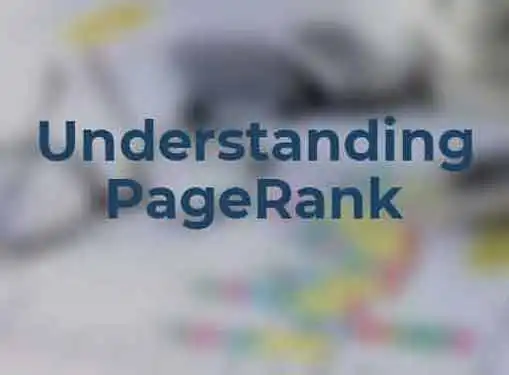Search Engine Optimization
Understanding PageRank
Understanding Google PageRank is key to any search engine optimization effort. Given the power of Google search, understanding PageRank should be a priority task for every business owner.
When we do search engine optimization, we tend to focus on making Google happy.

If you optimize for Google you are usually in good shape for the other search engines, and Google searches also constitute the vast majority of web searches these days.
Google uses PageRank as a fundamental part of its search engine algorithm. A site's PageRank ranges from 0 to 10 and a higher number signifies higher status and translates into higher results.
Generally speaking, you want your site to have a PageRank of 5 or more.
You can tell what your PageRank is by installing the Google toolbar. Go to http://toolbar.google.com to do this. You need to go into the toolbar settings and enable PageRank visibility. Now, visit any site and you will see their PageRank - mouse over the PageRank graphic in the toolbar and it will give you the number.
Unfortunately, this is only an approximate assessment of your PageRank because while Google recalculates PageRank continuously, they only occasionally republish these results so they show up in Google toolbar; nonetheless, it's the best way to get a sense of what your PageRank is (or recently was, as the case may be).
Although it's important to work to maximize your PageRank, the absolute number is only relevant in the context of your competitors for a given keyword phrase.
If two sites are identical, but one has a higher PageRank, then the one with the higher PageRank will always come out on top of the others in the search results.
So what is PageRank exactly?
It's the result of a fairly complex algorithm that Google undertakes, but it can be boiled down to these fundamentals:
- The more sites that link to you, the higher your PageRank.
- The higher the PageRank of the pages that link to you, the higher your PageRank.
The PageRank of your site is calculated on a per page basis. If your main page is a 3, it's likely that pages within your site that are linked to from the main page might be a 2.
There are many nuances to how PageRank accrues. For example, it's better to get a link from another site's page that has a PageRank of 7 if that page has 5 outbound links on it rather than 100. In other words, the value of the page is distributed across the links in some fashion.
It's also better to get links from sites that have a similar "theme" to your site. It's also bad to get links from sites that are held in poor esteem by Google (so called "link farms").
Think of PageRank as the fuel that powers how your pages do in search results. You have a certain amount of fuel and you spread it across all your pages. If you put fuel in the wrong place, you are wasting precious fuel.
So, in addition to trying to get a high PageRank, it's important to think strategically about how you spread PageRank throughout your site - and make sure it's not being wasted.
Share this article
Additional Resources for Entrepreneurs




Conversation Board
Do you have anything to add regarding PageRank basics? Did this article help you to understand how PageRank works? Let us know.